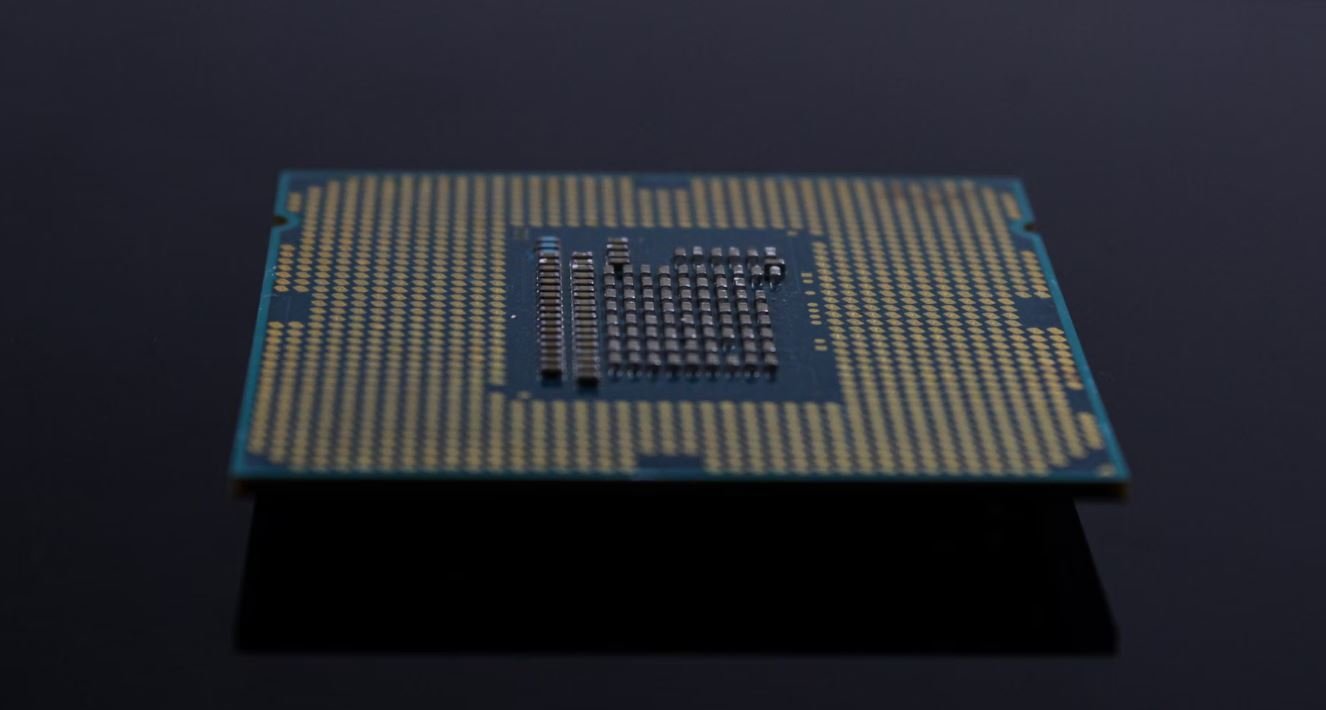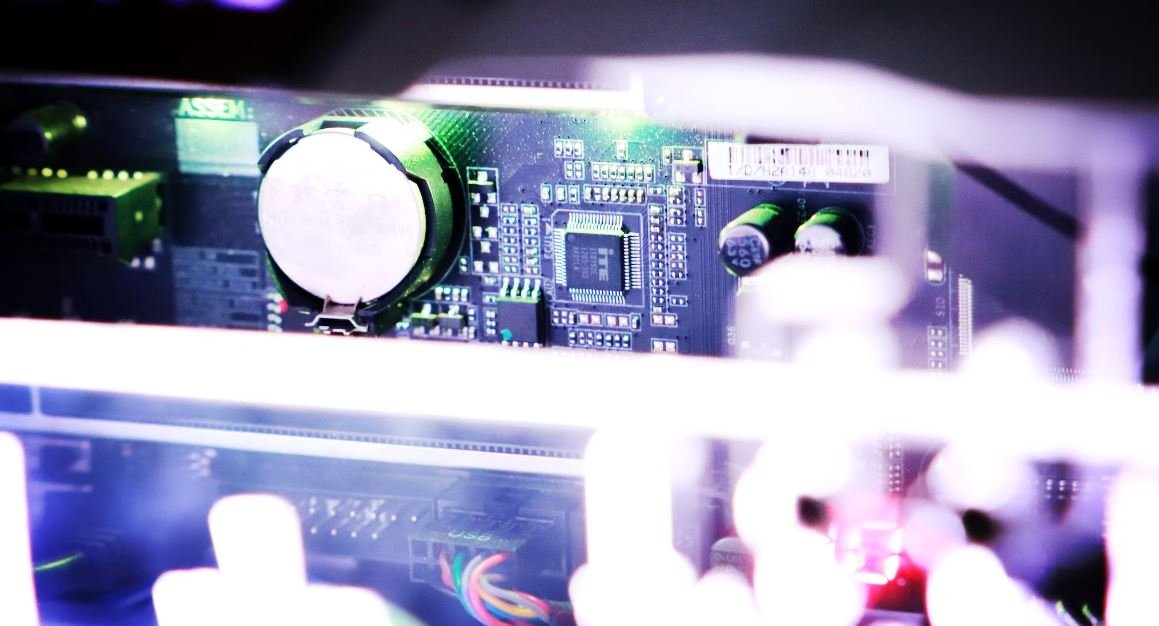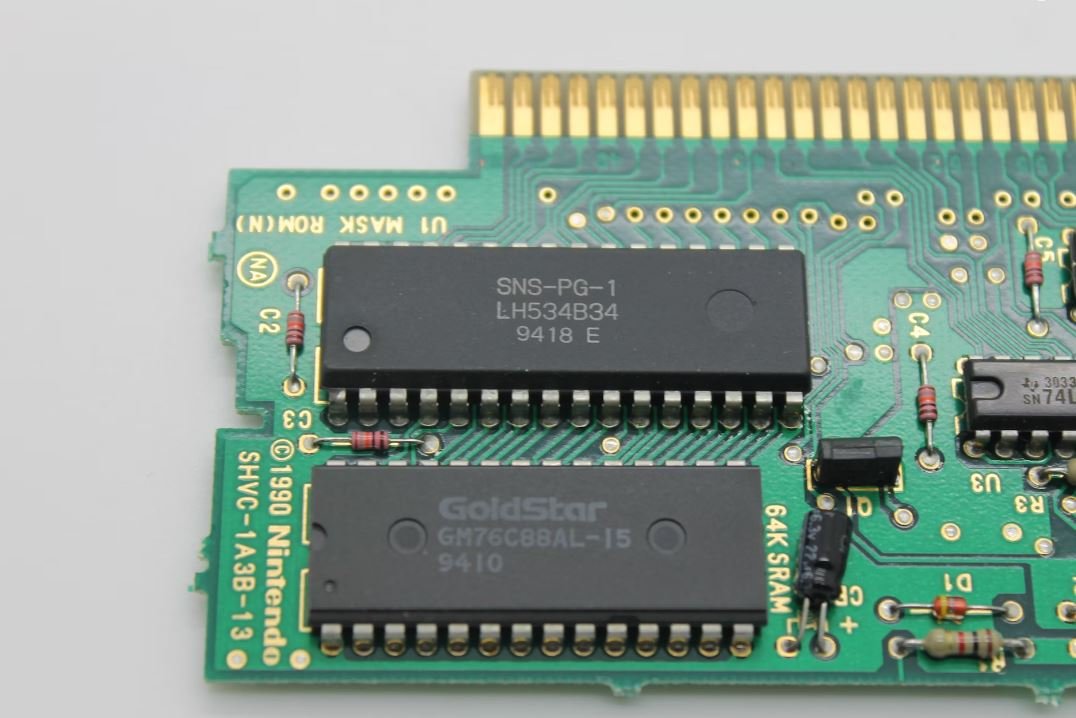AI Media and Entertainment
AI technology has rapidly transformed numerous industries, and the media and entertainment sector is no exception. From personalized recommendations to improved content creation, AI is revolutionizing how we consume and enjoy media. This article explores the various ways AI is shaping the media and entertainment landscape.
Key Takeaways
- AI is transforming the media and entertainment industry.
- Personalized recommendations and content creation are enhanced by AI.
- AI can improve production workflow and efficiency.
- Emerging AI-powered technologies, like virtual reality and chatbots, are changing the way we engage with media.
One of the most significant changes AI has brought to the media and entertainment industry is the ability to provide personalized recommendations. Through sophisticated algorithms, AI systems can analyze user preferences and behavior to suggest tailored content, whether it’s movies, music, or articles. This not only enhances the user experience but also helps content creators and distributors improve engagement and retention rates. **AI-powered recommendation algorithms have proven to be highly effective in increasing user satisfaction and consumption**.
Content creation and curation have also greatly benefited from AI technologies. AI can analyze vast amounts of data to identify trends, sentiment, and user preferences, enabling content creators to produce more compelling and relevant material. For example, streaming platforms like Netflix leverage AI to determine which shows have the highest chances of success, making data-backed decisions on which projects to greenlight. **This data-driven approach to content creation helps minimize risks and increase the chance of producing popular, binge-worthy series**.
Furthermore, AI has improved the production workflow and efficiency in media and entertainment. AI-powered tools can automate various tasks, such as video editing, transcription, and image recognition, saving time and reducing costs. This allows media companies to allocate resources more efficiently and focus on more creative and strategic endeavors. **By automating time-consuming processes, AI streamlines the production pipeline and enables faster delivery of high-quality content**.
The Rise of Emerging AI-powered Technologies
Apart from its impact on recommendation systems, content creation, and production workflows, AI is also giving rise to new and exciting technologies in the media and entertainment space. The integration of AI and virtual reality (VR) has created immersive experiences that revolutionize storytelling. VR allows users to be an active part of the narrative by simulating a realistic environment where they can explore and interact. **The combination of AI and VR opens up a world of endless creative possibilities, transforming traditional entertainment formats into interactive and engaging experiences**.
Another emerging AI-powered tool is the chatbot. These artificial intelligence programs can interact with users through messaging platforms or voice assistants, providing personalized recommendations, answering questions, and even engaging in conversation. Chatbots have become particularly popular in the media industry, where they can act as virtual assistants, helping users discover relevant content and keeping them informed about their favorite topics. **With chatbots, media companies can deliver engaging experiences, gather user insights, and increase customer loyalty**.
Data Insights in the Media and Entertainment Industry
| Data Insights | Value |
|---|---|
| Genre preferences | Helps content creators understand audience preferences and develop targeted content. |
| User engagement metrics | Allows media companies to identify areas for improvement and optimize their platforms. |
| Viewer retention rates | Enables personalized recommendations and helps retain users by suggesting compelling content. |
Data-driven insights are invaluable in the media and entertainment industry. By analyzing vast amounts of data, AI algorithms can provide valuable information that helps companies make data-backed decisions. Here are some key data insights that media and entertainment companies leverage:
- Genre preferences: Analyzing user behavior and viewing patterns can reveal genre preferences, allowing content creators to develop targeted and relevant content.
- User engagement metrics: Measuring user engagement, such as time spent on platform, click-through rates, and social media interactions, provides valuable insights for media companies, enabling them to identify areas for improvement and optimize their platforms.
- Viewer retention rates: AI algorithms can analyze viewing habits to determine what keeps users engaged and interested. This data allows for personalized recommendations, ensuring users stay on the platform by suggesting compelling content tailored to their preferences.
The Future of AI in Media and Entertainment
AI has brought significant advancements to the media and entertainment industry, but its impact continues to evolve. As AI technologies become more sophisticated, we can expect even more transformative changes. Advancements in natural language processing and computer vision will enhance recommendation algorithms and content creation tools, further tailoring the media experience to individual preferences. **The integration of AI and blockchain technology may also revolutionize content distribution and copyright management, providing a more transparent and secure environment for creators and consumers**. With such rapid progress, the future of AI in media and entertainment is bound to be exciting and game-changing.

Common Misconceptions
Misconception 1: AI will replace human creativity in the media and entertainment industry
One common misconception about AI in the media and entertainment industry is that it will replace human creativity and innovation. However, this is not entirely true. AI can certainly assist in the creative process by generating ideas, detecting patterns, and even producing content, but it cannot replicate the unique human perspective and imagination.
- AI can help automate repetitive tasks, freeing up more time for human creatives to focus on higher-level tasks.
- AI-powered tools can provide valuable insights and predictions, aiding decision-making and enhancing creative outputs.
- Collaboration between AI and humans can lead to new and unexpected ideas that combine the strengths of both parties.
Misconception 2: AI will lead to widespread job loss in the industry
Another common misconception is that AI will lead to widespread job loss in the media and entertainment industry. While AI can automate certain tasks, it also creates new job opportunities and transforms existing roles. The key is to embrace AI as a tool that enhances and augments human capabilities rather than viewing it as a complete replacement.
- AI can create new job roles that require expertise in managing and optimizing AI systems.
- Human creative skills are still highly valued and cannot be fully replicated by AI.
- AI can empower creatives to explore new markets and reach wider audiences, leading to new job opportunities.
Misconception 3: AI cannot understand human emotions and preferences
Many people mistakenly believe that AI cannot understand human emotions and preferences. While it is true that AI lacks the full range of human emotions, it can analyze vast amounts of data to detect patterns and make informed predictions about human preferences. AI algorithms can be trained to recognize and react to human emotions in various ways. It can enhance personalization and create tailored experiences for users.
- AI-powered recommendation systems can understand user preferences based on past behavior and make relevant content suggestions.
- Sentiment analysis algorithms can analyze social media data to gauge public opinion and emotional responses to media content.
- AI can dynamically adjust content in real-time based on user feedback, optimizing the user experience.
Misconception 4: AI is only useful in the production and distribution of content
Some people believe that AI is only useful in the production and distribution of content, overlooking its potential in other areas of the media and entertainment industry. AI technologies have the capability to revolutionize various aspects, including content discovery, audience engagement, and even monetization.
- AI algorithms can personalize content recommendations based on user preferences, leading to more engaging and satisfying experiences.
- AI-powered chatbots and virtual assistants can improve customer service and facilitate interactive experiences.
- AI analytics can help identify emerging trends, allowing media companies to make data-driven decisions about content selection and investment.
Misconception 5: AI is only accessible to large media and entertainment companies
Lastly, many people believe that AI is only accessible to large media and entertainment companies with significant resources. In reality, AI technologies and tools have become more accessible and affordable, empowering even smaller players in the industry to leverage AI capabilities.
- Cloud-based AI platforms have reduced the need for expensive hardware and infrastructure, making AI more accessible to smaller companies.
- AI software development kits (SDKs) and application programming interfaces (APIs) allow developers to integrate AI functionalities into their applications without reinventing the wheel.
- Open-source AI frameworks and libraries provide a cost-effective way to experiment and develop AI solutions.

AI in the Entertainment Industry: A Game-Changing Revolution
Artificial Intelligence (AI) has revolutionized various industries, and the world of media and entertainment is no exception. From enhancing video game experiences to transforming film production and distribution, AI has introduced exciting advancements that have captivated audiences worldwide. The following tables showcase remarkable examples of AI’s impact on various aspects of the media and entertainment landscape.
1. AI-Powered Video Games
AI technology has greatly influenced the gaming industry, contributing to immersive and dynamic gameplay. These innovative titles below showcase the incorporation of AI in video games, revolutionizing player experiences.
| Game | AI Application |
|---|---|
| Cyberpunk 2077 | AI-generated city life simulation |
| The Last of Us Part II | Enemy NPCs with adaptive AI behavior |
| Horizon Zero Dawn | AI-controlled robotic creatures |
2. AI-Driven Content Creation
AI systems can generate content efficiently, providing artists and creators with new tools and possibilities for exploring their artistic visions. These examples highlight AI’s role in media creation, ranging from music to visual art.
| Creative Medium | AI Application |
|---|---|
| Music | AI-composed pieces and personalized playlists |
| Painting | AI-assisted creation and style transfer |
| Screenwriting | AI-generated plot suggestions and character development |
3. AI in Film Production
AI has revolutionized various aspects of film production, offering tools to streamline processes, enhance special effects, and improve overall efficiency. The tables below demonstrate AI’s impact on different stages of film production.
Visual Effects
| AI Application | Benefit |
|---|---|
| AI-generated CGI | Realistic renderings of fantastical creatures and environments |
| Green screen processing | Efficient replacement of backgrounds during post-production |
Script Analysis
| AI Application | Benefit |
|---|---|
| Speech and sentiment analysis | Understanding and optimizing dialogue delivery |
| Character behavior prediction | Better understanding audience reactions to storylines |
4. AI and Music Industry
The introduction of AI technologies in the music industry has transformed how music is created, produced, and consumed. The tables below illustrate AI’s impact on different areas within the music sector.
Music Production
| AI Application | Advantage |
|---|---|
| Automated mixing and mastering | Consistency and enhanced sound quality |
| Sample and loop generation | Endless creative possibilities and instant inspiration |
Recommendation Systems
| AI Application | Benefit |
|---|---|
| Personalized music recommendations | Discovering new artists and tailored listening experiences |
| Playlist curation | Dynamic and context-aware playlist generation |
Conclusion
As AI continues to revolutionize the media and entertainment industries, we witness remarkable advancements that enhance user experiences, streamline production processes, and introduce new creative outlets. From AI-powered video games that immerse players in dynamic worlds to the AI-driven content creation that pushes the boundaries of artistic expression, the impacts of AI are vast and exciting. Whether in film production, music creation, or other facets of entertainment, AI will undoubtedly continue to shape the industry’s landscape, enriching our future multimedia experiences.
Frequently Asked Questions
What is AI Media and Entertainment?
AI Media and Entertainment refers to the integration of artificial intelligence technologies in the media and entertainment industry. It involves the use of AI algorithms and machine learning techniques to improve various aspects of the industry, such as content creation, distribution, marketing, and audience engagement.
What are the benefits of AI in the media and entertainment industry?
AI offers several benefits to the media and entertainment industry. It can help automate content creation processes, personalize user experiences, enhance recommendation systems, improve audience analytics, optimize advertising campaigns, and enable more efficient content distribution.
How is AI used in content creation?
AI can be used in content creation to generate automated news articles, write scripts, create music, generate personalized recommendations, and even produce visual effects and animations. It allows for more efficient and cost-effective content production processes.
Can AI improve content recommendation systems?
Yes, AI can significantly enhance content recommendation systems. By analyzing user data and preferences, AI algorithms can provide more accurate and personalized recommendations, leading to a better user experience and increased engagement.
What role does AI play in audience analytics?
AI plays a crucial role in audience analytics by analyzing large amounts of data collected from various sources, such as social media, streaming platforms, and user interactions. This helps media companies gain insights into audience behavior, preferences, and trends, enabling them to make data-driven decisions and improve their content strategy.
How does AI optimize advertising campaigns?
AI can optimize advertising campaigns by delivering targeted and personalized ads to specific audiences. By analyzing user data, AI algorithms can identify relevant demographics, interests, and behaviors, ensuring that ads are more relevant and effective. This leads to higher conversion rates and better return on investment for advertisers.
What are the challenges of implementing AI in the media and entertainment industry?
Some challenges of implementing AI in the media and entertainment industry include the need for large amounts of high-quality data, the ethical implications of AI algorithms, potential biases in AI decision-making, the cost of AI infrastructure, and the need for skilled professionals who understand both AI and the industry.
Can AI replace human creativity in the media and entertainment industry?
While AI can assist in various creative tasks, it is unlikely to fully replace human creativity in the media and entertainment industry. AI systems lack human emotions, intuition, and the ability to think outside the box. However, AI can augment human creativity by providing tools and insights to enhance the creative process.
How is AI shaping the future of media and entertainment?
AI is shaping the future of media and entertainment by enabling personalized and immersive experiences, improving content discovery and recommendation, automating production processes, enhancing audience analytics, and optimizing advertising campaigns. It has the potential to revolutionize the industry and drive innovation in various aspects.
What are some notable examples of AI in the media and entertainment industry?
Some notable examples of AI in the media and entertainment industry include AI-powered recommendation engines like those used by streaming platforms, AI-generated content such as computer-generated imagery in movies, AI-enabled chatbots for customer support, and AI-driven music composition tools.




